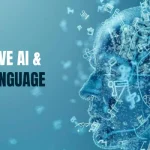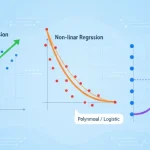Regression models are among the most important tools in data science and machine learning. They help analysts understand relationships, make predictions, and uncover patterns within data. Whether you are a beginner or a growing practitioner, learning the fundamentals of regression is essential. If you are looking to gain hands-on knowledge, enrolling in a Data Science Course in Mumbai at FITA Academy can provide structured learning and practical exposure. This article introduces linear regression, logistic regression, and a few additional models that every data scientist should know.
Understanding the Purpose of Regression
Regression models are designed to explain how one or more input variables influence an output variable. By studying these relationships, data scientists can forecast future values, measure the strength of a trend, and support data driven decisions. The fundamental goal is to construct a model that represents the underlying behavior of the data in a straightforward and meaningful way.
Linear Regression Explained
Linear regression is the most basic and widely used regression model. It predicts a continuous numerical value by fitting a straight line between the input variables and the target variable. The model assumes that changes in the inputs cause gradual and consistent changes in the output. If you want to master these concepts in a structured way, enrolling in a Data Science Course in Kolkata can provide practical training and hands-on experience with linear regression and other essential data science techniques.
For example, if you study how advertising spending affects sales, linear regression can estimate how much sales increase for every additional unit of spending. Its simplicity makes it easy to understand and interpret, which is why it remains the foundation of many predictive modeling workflows.
A major advantage of linear regression is transparency. You can see how each input contributes to the prediction. However, it works best when relationships are close to linear and when the dataset does not contain major outliers or complex patterns.
Logistic Regression and Classification
Logistic regression is applied when the output variable is categorical rather than continuous, signifying options like yes or no, or pass or fail. Even though its name includes the word regression, it is actually a classification model. To acquire practical insights and firsthand experience with logistic regression and various essential data science methods, joining a Data Science Course in Jaipur can prove to be very advantageous for newcomers as well as experienced individuals.
The model estimates the probability that an event belongs to a specific class. It then uses a threshold to assign the final category. Logistic regression is popular because it is simple, efficient, and interpretable. It performs well when the relationship between the inputs and the probability of an outcome is smooth and gradual.
This model is often used in fields like healthcare, finance, and marketing for tasks such as predicting customer churn, assessing risk, or detecting whether an email is spam.
Other Useful Regression Models
Beyond linear and logistic regression, several other models expand what you can do with data. Polynomial regression can capture curved relationships by adding higher degree terms. Ridge regression and Lasso regression help reduce overfitting by adding penalties that keep the model stable and more generalizable. These techniques are especially helpful when working with many input variables or when some features are highly correlated.
Why Regression Remains Essential
Regression models form the backbone of many analytics and machine learning systems. They are easy to implement, quick to train, and highly interpretable. Whether you are predicting prices, estimating probabilities, or exploring relationships, regression provides a reliable starting point for understanding patterns within data. For those looking to gain practical skills, taking a Data Science Course in Pune can provide structured learning and hands-on experience with regression models and other essential data science techniques.
Also check: Model Interpretability and Explainable AI (XAI)






Recent Comments